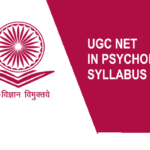The human mind possesses a remarkable ability to not only think but also reflect upon its thinking processes. This self-awareness and self-regulation constitute metacognition, a fascinating aspect of cognitive psychology. In this blog, we embark on a journey to understand metacognition, focusing on its two main components: metacognitive knowledge and metacognitive regulation. These components play a pivotal role in shaping our awareness of cognitive processes and our ability to control and optimize them.
Metacognition: An Overview
Metacognition refers to the awareness and understanding of one’s cognitive processes. It involves thinking about thinking, and it plays a crucial role in learning, problem-solving, decision-making, and overall cognitive functioning. Metacognition is not a single process but a multifaceted construct encompassing metacognitive knowledge and metacognitive regulation.
- Metacognitive Knowledge: Metacognitive knowledge involves understanding and possessing awareness of one’s cognitive processes. It consists of three main components:
- Declarative Knowledge: Knowledge about oneself as a learner, including awareness of one’s strengths and weaknesses, cognitive abilities, and personal learning preferences.
- Procedural Knowledge: Understanding how to approach different types of tasks, such as problem-solving, decision-making, or learning new information. This includes knowledge of various cognitive strategies and their application.
- Conditional Knowledge: Knowing when and why to use specific cognitive strategies. This involves an understanding of the conditions under which certain strategies are effective and when to modify or adapt them.
- Metacognitive Regulation: Metacognitive regulation is the active monitoring, control, and adjustment of cognitive processes to enhance learning and performance. It involves applying metacognitive knowledge to regulate one’s thinking. This component consists of four main strategies:
- Planning: Setting goals, selecting strategies, and organizing the resources needed to achieve a particular cognitive task.
- Monitoring: Keeping track of one’s cognitive processes during task performance, assessing progress, and evaluating the effectiveness of chosen strategies.
- Evaluation: Reflecting on the outcomes of cognitive tasks, assessing success or failure, and determining the need for adjustments in future efforts.
- Revision: Modifying strategies or approaches based on the evaluation of current performance. This adaptive quality allows individuals to improve their cognitive processes over time.
Real-Life Applications:
- Learning and Academic Achievement: Metacognition is a key factor in effective learning. Students who possess strong metacognitive skills can better plan their study sessions, monitor their understanding of the material, and adjust their learning strategies as needed. This contributes to improved academic achievement.
- Problem-Solving and Decision-Making: Metacognitive abilities are crucial in navigating complex problem-solving situations. Individuals with well-developed metacognitive skills can plan their approach to problem-solving, monitor their progress, evaluate the effectiveness of their strategies, and make necessary adjustments.
- Daily Life and Self-Regulation: Metacognition extends beyond academic settings to everyday life. Being aware of one’s cognitive processes allows for better decision-making, effective time management, and enhanced self-regulation in various aspects of life.
Challenges and Development:
- Challenges in Metacognition:
- Overconfidence: Individuals may overestimate their understanding or abilities, leading to suboptimal decision-making.
- Lack of Awareness: Some individuals may struggle with metacognitive knowledge, lacking a clear understanding of their cognitive strengths and weaknesses.
- Developing Metacognitive Skills:
- Reflection: Encouraging individuals to reflect on their thinking processes and learning experiences promotes the development of metacognitive knowledge.
- Explicit Instruction: Teachers and educators can explicitly teach metacognitive strategies and provide opportunities for students to apply them in various contexts.
- Feedback: Providing constructive feedback that focuses on metacognitive processes helps individuals understand how to improve their thinking and learning strategies.
Conclusion:
Metacognition serves as the mind’s mirror, reflecting our awareness and regulation of cognitive processes. Metacognitive knowledge and metacognitive regulation, the twin pillars of this construct, empower us to navigate the complexities of learning, problem-solving, and decision-making. Whether applied in academic settings, daily life, or personal development, metacognition enhances our ability to understand ourselves as thinkers and learners. As we continue to explore the depths of cognitive psychology, the study of metacognition remains a captivating journey, unravelling the mysteries of the mind’s self-awareness and regulatory capabilities.







